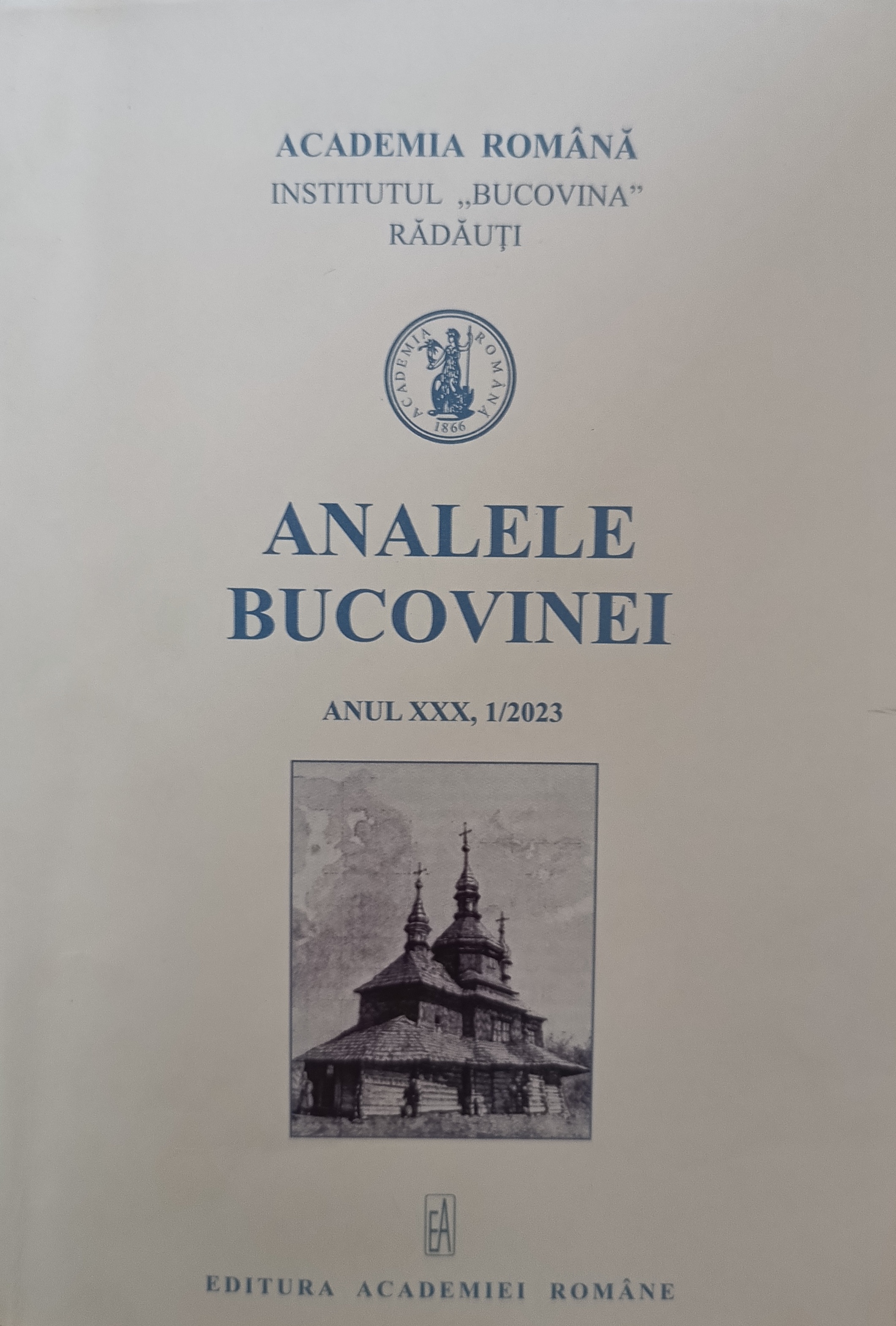THE ISSUE OF OBSERVANCE OF NATIONAL MINORITIES RIGHTS IN THE POLITICAL ACTIVITIES OF REPRESENTATIVES OF THE UKRAINIANS
OF BUKOVYNA IN 1928–1929
THE ISSUE OF OBSERVANCE OF NATIONAL MINORITIES RIGHTS IN THE POLITICAL ACTIVITIES OF REPRESENTATIVES OF THE UKRAINIANS
OF BUKOVYNA IN 1928–1929
Author(s): Ihor PiddubnyiSubject(s): Civil Society
Published by: Editura Academiei Române
Keywords: Bukovina; national minorities; Ukrainians; rights; political activities
Summary/Abstract: The death of King Ferdinand Ist and of the leader of the National Liberal Party I. I. C. Brătianu in 1927 laid the conditions for the change of power in Romania. The meeting in Alba-Iulia in May 1928 played an important role in the National Peasant Party coming to power, because the program of the party’s activities for the near future was announced there. After the government of I. Maniu came to power in November 1928, the representatives of the national minorities of Romania expected changes in the government's attitude towards the observance of the rights of national minorities, as well as the political regime liberalisation. The observance of the rights of national minorities for the Ukrainians of Bukovina was seen primarily in the return of the Ukrainian teaching language to the educational sphere adopted by the government. The resumption of activities was another issue after the abolition of the siege state in northern Bukovina, as well as Ukrainian educational societies, primarily the “Ruska Besida”, which performed tasks in educational activities through reading and amateur theatrical groups. The third issue, which should guarantee the implementation of the first two ones, was to obtain a sufficient number of seats in parliament for representatives of the Ukrainian community. From mid-October 1928 through February 1929, Ukrainian communities of Bukovina filed requests for teaching in Ukrainian. The newspaper “Chas” (Time) also dealt with this issue, publishing reports on the meeting of the communities. As a result, 199 applications were received with 30 thousand signatures, which gave the government grounds to talk about the possibility of introducing the corresponding number of teaching hours in schools of 139 communities. In general, the decision of the government in the field of teaching in the Ukrainian language was not made till December 1929 that caused concerns and statements from the Ukrainian side. Also, V. Zalozetskyi who was elected to the Senate in January 1929 made a statement about the loyalty of the Ukrainians of Bukovina to the authorities and motivated the need to introduce the Ukrainian language of teaching for Ukrainians. A number of statements concerning the need to study the state and Ukrainian languages in equal proportions was made by the communities. V. Zalozetskyi called the national consciousness of the Ukrainians of Bukovina not posing a threat to the Romanian statehood, but it could become a condition for preparing the intelligentsia for the future ‘non-Bolshevik Ukraine’. The restoration of the number of organizations of the “Ruska Besida” society led to the spread of the amateur theatre group activities. Such steps gave grounds, primarily to representatives of national liberals, to make statements about the demands of Ukrainians to remove the Romanian language from school. The active role in presenting the situation was played by the newspapers “Curentul” and “Universul”, describing the position and actions of national minorities too critically. In general, the Ukrainians turned out to be a very quiet minority comparing with the Hungarians’ protests and the situation in Dobrudja, although they were less organized to fight for the observance of their rights.
Journal: ANALELE BUCOVINEI
- Issue Year: 60/2023
- Issue No: 1
- Page Range: 163-184
- Page Count: 22
- Language: English

